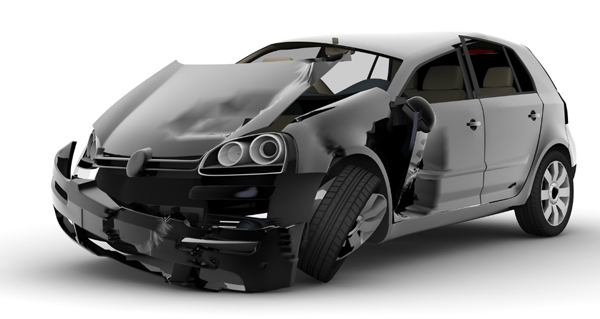DETROIT — Automakers are imagining a world where nobody dies in car accidents and they say it is closer than most people think.
While they maintain that the real solution to a crash-free world lies in self-driving cars, a host of high-tech safety features are making drivers safer — and better — in the meantime.
“The long-term vision is that cars shouldn’t crash,” Volvo spokesman Jim Trainor said Tuesday on the sidelines on the Detroit Auto Show.
Volvo — which has built its reputation on safety leadership — has set a goal that by 2020 nobody will be killed or seriously injured in its new cars.
The past decade has seen dramatic development by various automakers in the field of collision-avoidance technology.
Blind-spot detectors now watch for oncoming vehicles, adaptive cruise controls reduce speed based on cars ahead, and camera systems warn drivers when they drift out of their lanes.
Detectors can even pick up on a drowsy driver’s subtle changes in behaviour to indicate it’s time for a break.
Frustration-free is ‘key’
The key to making new safety features desirable to drivers is ensuring that they assist rather than irritate, Trainor said.
“If it false brakes too often, people get frustrated and they turn the system off,” he told AFP. “We need to calibrate the system so it gives the driver every last possible moment to take action.”
In addition to accident avoidance, Volvo is developing systems that reduce injuries when crashes are inescapable.
Among these is a rear impact mitigation system which senses if a car is approaching too quickly and preconditions the interior for impact by tightening seatbelts and engaging brakes.
Safety for the masses
Initially reserved for high-end luxury vehicles, the cost of safety technology is falling and finding its way into lower-priced automobiles.
The new Ford Fusion, which the automaker introduced at the Detroit Auto Show Monday, contains 20 driver-assistance technologies, including a pedestrian-detection system and a steering wheel, that vibrates if a driver begins drifting from the lane.
“As we release more vehicles I think you’ll anticipate a lot of migration across the line-up,” Ford spokesman John Cangany told AFP.
GM unveiled a new rear-door monitor in its GMC Acadia crossover Tuesday that reminds drivers to check the back seat for children before leaving the car.
The safety feature will eventually be included in all of its models.
“Too many children are accidentally left behind in vehicles,” Mark Reuss, head of product development at GM, said while introducing the feature.
GM is the first automaker to use the alert system and is working on technology that can detect if a child is left behind.
About 30 to 40 children die every year in the United States from heatstroke after being left in a hot vehicle, most because their distracted parents simply forgot they were still in their car seats.
“Obviously we want to protect our customers,” Rich Latek, who heads marketing for GMC, told AFP.
“We’re really looking at a goal to end up with zero collisions and zero fatalities. It’s a lofty goal but it’s something that’s possible with the technology that’s out there.”
Meanwhile, Toyota recently introduced a new suite of features called Safety Sense which will be offered on nearly all models by 2017.
When first introduced on Lexus vehicles it cost an additional $6,000. Toyota has now managed to bring the price down to $300 to $630, spokesman Mike Kroll said.
Scandals hit confidence
Despite the science fiction-like advancements in safety technology, a slew of scandals has undermined trust in the reliability of vehicles.
Monday saw the first civil trial over a deadly ignition switch defect which General Motors hid from safety regulators for more than a decade and is linked to at least 124 deaths.
Automakers are still working to replace potentially explosive airbags by Japanese supplier Takata in 19 million vehicles in the United States.
And Fiat Chrysler and Toyota have each become embroiled in scandal — and handed millions upon millions of dollars in fines — over improperly handling or even covering up defects in millions of vehicles.
